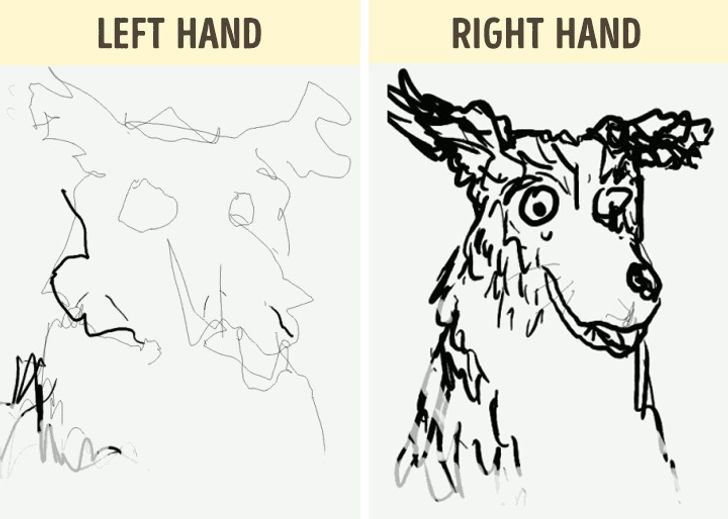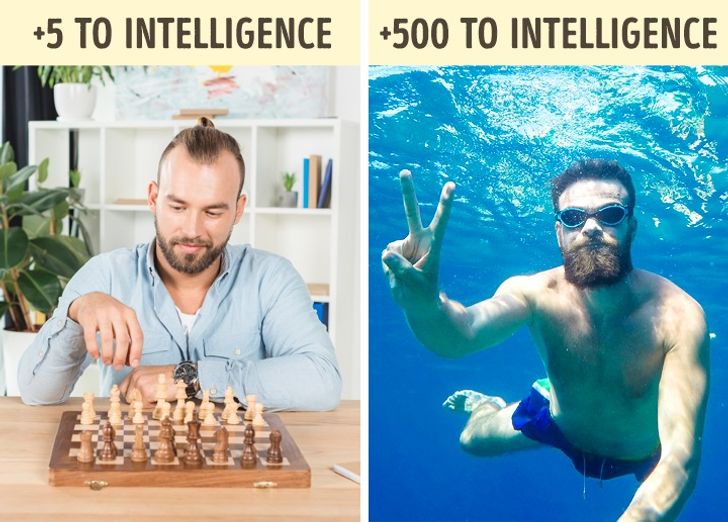The 21st century ushered in an era where scientists could literally enter the human brain and debunk all the myths about its inner workings. For example, your size and weight are not related to your level of intelligence.
Scientists began testing and observing methods to improve brain function and develop new skills from scratch at any age. Special agents, athletes, astronauts, doctors, and biohacking enthusiasts are actively using these discoveries.
We will talk about popular misconceptions about the brain and offer you several good ways to improve your productivity.
Myth: The Brain Never Gets Tired
Truth: The brain never tires of doing intellectual work, but psychological and physical states can influence its concentration and activity.
Recent research has shown that the brain works best where you can hear the sound of waves, feel the salty breeze, see all shades of blue, and feel the warm sand. That is why we regain our strength much faster near the ocean.
What to do: Try halotherapy, take a walk in the forest, vacation near bodies of water, and don’t be ashamed to walk barefoot during the summer. Try to go to the beach whenever you can.
Myth: You Won’t Become A Math Genius By Drawing
Truth: Always draw when you cannot solve a complicated task or have to make a difficult decision. The design activates the work of both hemispheres of the brain and you will find the right solution much faster.
Integrated studies have shown that children learn math better and memorize information more quickly if they illustrate new material or scribble in their notebooks.
What to do: doodle or draw for 10-20 minutes. Use your non-dominant hand. For example, if you are left-handed, use your right hand. Try to do it every day and you will see a positive effect in just one month.
Myth: Swings Are For Kids
Truth: Playing on the swing in early childhood promotes the development of certain parts of the brain responsible for processing speech and information.
Balance and spiral strengthen the vestibular apparatus of the ear at any age, improving spatial orientation skills. This fact has been proven by astronauts.
What to do: Play on the swings for 15 to 20 minutes, 2 to 3 times a week and never miss a ride on the carousel. This will prevent you from dizziness and symptoms of excessive alcohol consumption.
Myth: Psychic Abilities Don’t Exist
Truth: something called the sixth sense is often seen among people who have had to develop certain sense organs. For example, blind people can feel the space around them while concentrating on hearing, smelling, or working with receptors in the skin.
To function properly, your brain creates a special map based on the information it receives.
What to do: several times a week, practice doing certain things with earplugs; try walking backward or playing “What’s in the box?”, where you have to guess what objects are hidden in a box.
Myth: Chess Is The Best Sport For The Brain
Truth: the brain works best during complex physical training. During a full body workout, the hormones responsible for memory, assimilation of new abilities, and the preservation of neurons are produced.
For example, during an experiment, study subjects had to solve tasks. During the break, group A stretched, group B rested. The results showed that the resting group failed in the task.
The important thing is to avoid putting your health at risk during training. Rugby players often have brain disorders due to head injuries that occur during each game.
What to do: Don’t just rely on chess and crosswords. Swim, dance and practice yoga to develop your whole body.
Myth: Milk Is Good For Your Brain
Truth: Milk has many contraindications. Consuming other dairy products is much better for the brain and body than milk. Wine, chocolate and other products that have a positive effect on the brain have not yet been tested and should be consumed in moderate amounts.
Obesity destroys neural pathways and sugar and trans fats cause inflammation. The brain switches to low-energy work and falls into depression.
On the contrary, the lack of food can unbalance the brain: it uses all its energy to obtain food and can make the person aggressive and irritable.
The lifespan of the brain is shortened and the risk of brain disease increases.
What to do: Include fatty fish, caviar, nuts, fruits, and vegetables in your daily diet. Try the ketogenic diet (but consult your doctor first).
Are you ready to try these techniques on yourself? Share your opinion with us in the comments.








